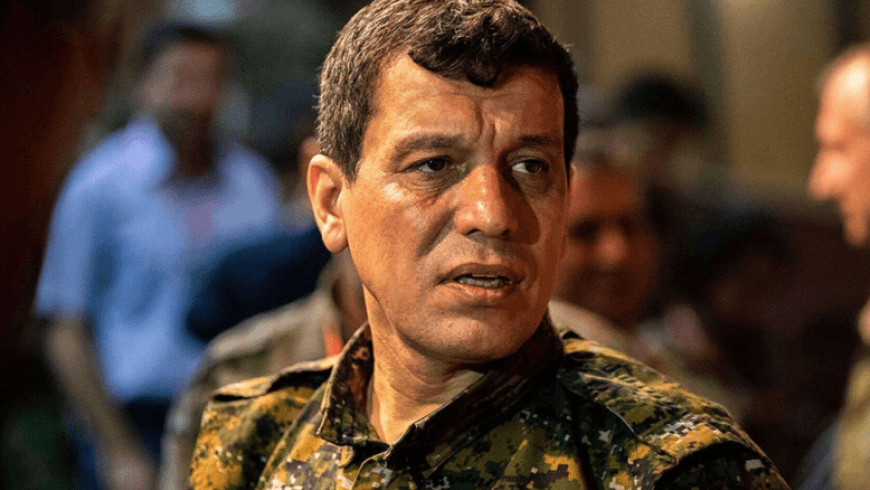Mazlum Abdi, commander of the Syrian Democratic Forces (SDF), has called for sustained diplomatic efforts by international mediators to address escalating tensions with Turkey. Abdi noted that dialogues with the Syrian regime have been in progress for years, despite the limited outcomes thus far.
In an interview with the Associated Press, Abdi stated that Turkey’s recent military operation in Syria was a long-planned initiative, using the recent attack in Ankara as a justification. “The attacks aren’t merely a response to events in Ankara; their scale and duration reveal a deeper agenda,” he said. He highlighted that Turkish strikes have severely damaged essential infrastructure, including electricity and oil facilities, impacting civilians and contributing to what he described as a broader Turkish strategy aimed at altering the region’s demographics by pushing out the Kurdish population.
Despite these hostilities, Abdi reiterated the SDF’s openness to dialogue, including with Turkey. “We are committed to diplomatic solutions,” he emphasized, urging the international coalition and other mediators to prioritize a peaceful resolution.
The SDF leader further expressed support for renewed peace negotiations between Turkey and the Kurdistan Workers’ Party (PKK), stressing that resolving these issues could positively impact the Kurdish situation in Syria.
Turkish Bombardment Impacts Anti-ISIS Operations
The ongoing conflict in northeastern Syria has intensified as U.S. forces plan a gradual withdrawal from Iraq and Syria, expected to be completed by 2026. Abdi voiced concern over how this reduced coalition presence could affect the region’s security, particularly regarding ISIS activity. “We conduct daily operations with coalition forces to counter ISIS threats, and a withdrawal would significantly elevate the threat level in the area,” he warned, noting that recent Turkish bombings have already disrupted two planned campaigns against ISIS cells.
Limited Progress in SDF-Syrian Regime Talks
Abdi disclosed that dialogues between the SDF and the Syrian government have been underway since the early years of the Syrian conflict. However, these discussions have stalled, primarily due to the regime’s resistance to recognizing the SDF’s administrative and military autonomy in northeastern Syria. “We’ve sought a formal agreement, but the lack of recognition for our self-administration and military independence remains a fundamental obstacle,” Abdi explained, calling these points “red lines” for the SDF.
Concerns Over the Adana Agreement
Abdi also raised concerns about Turkey’s renewed alignment with the Syrian government, suspecting Ankara’s intentions to dismantle the Autonomous Administration in northeastern Syria. He warned that Turkey’s proposal to reactivate the 1998 Adana Agreement—which addresses cross-border security concerns with Syria—could have severe implications for Kurdish regions in Syria.
“The Turkish government has openly stated its willingness to work with the Syrian regime if it means undoing the current structure in our region, positioning us directly in their crosshairs,” Abdi stated.
As Abdi continues to advocate for diplomacy, the SDF faces significant challenges in maintaining stability in a region impacted by geopolitical tensions and the ongoing threat of ISIS.
This article was translated and edited by The Syrian Observer. The Syrian Observer has not verified the content of this story. Responsibility for the information and views set out in this article lies entirely with the author.


